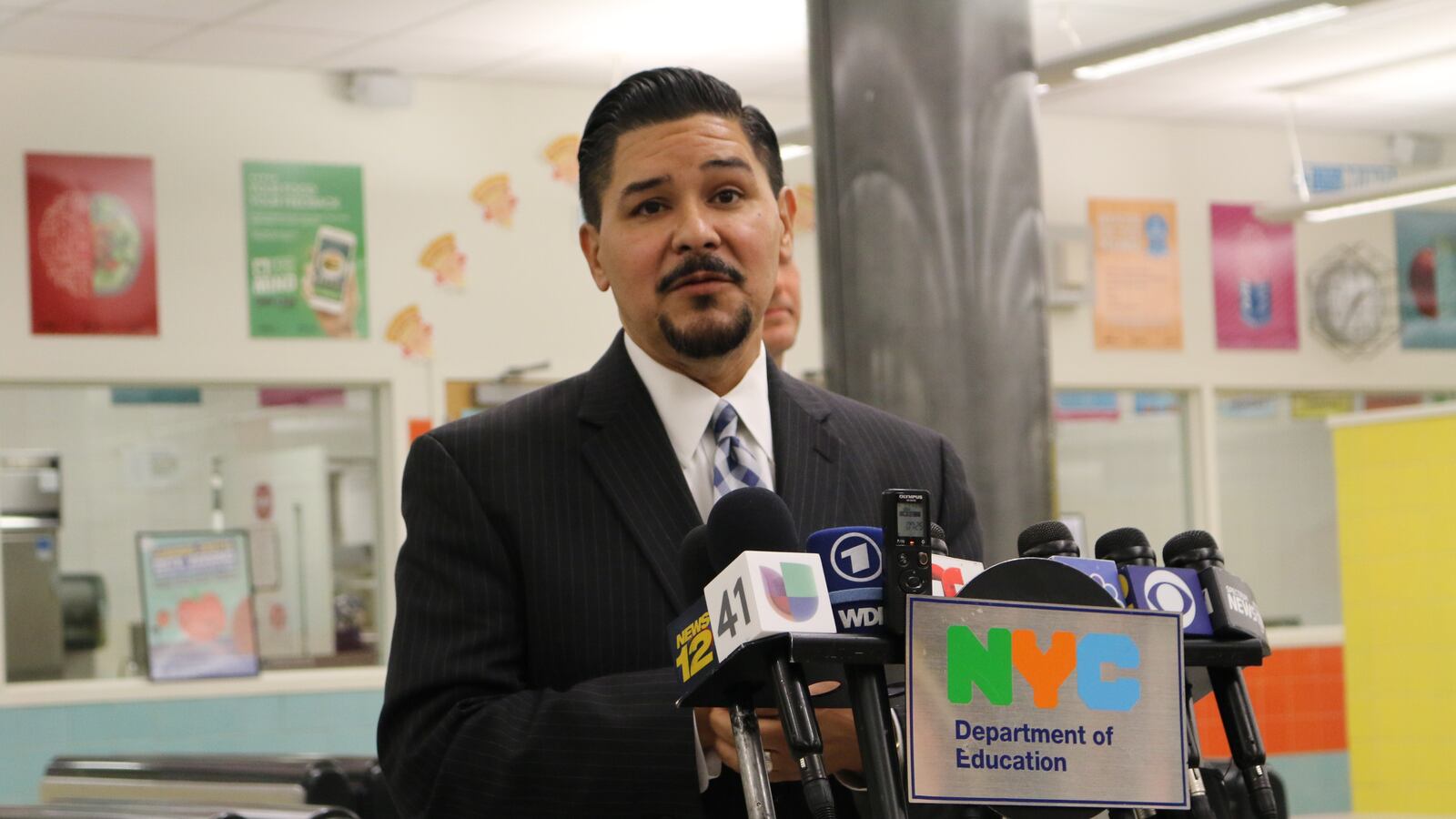This is part of an ongoing collaborative series between Chalkbeat and THE CITY investigating learning differences, special education and other education challenges in city schools.
More public school students experienced delays in getting evaluated for special education services last year — in violation of federal timelines, a city Department of Education report revealed Friday.
Schools failed to meet the 60-day timeline for evaluating students for additional supports or smaller classroom settings in roughly 30% of the cases in the 2018-19 school year — up about 2% from the year prior. That meant 4,229 students weren’t evaluated within the mandated window last year.
The increase follows a report this week by Chalkbeat and THE CITY highlighting that significant delays were among the main challenges parents face in securing comprehensive special education evaluations for their children in public schools.
The clock begins when a parent formally consents to having their child evaluated, typically by a school psychologist, and ends when the assessment is completed. However, the DOE uses the school meeting that follows the evaluation — where a team of educators and the family formulate an individualized education program for the student — as its end date.
For students already receiving special education services last school year, roughly 26% saw delays when re-evaluations were requested for them, representing a similar 2% increase in the number of delays from the year before.
That meant 5,485 children weren’t reevaluated on time under the law.
Illustrates Parental Struggles
“This is a sort of window into … the hurdles parents like myself have had to go through continuously,” said Naomi Peña, president of the parents council in lower Manhattan known as Community Education Council 1.
Peña said she had to fight for more than a year for her middle child to get supportive services in first grade that included speech and physical therapy, in part by paying for an independent evaluation by a neuropsychologist outside of school.
“I think it’s shameful that parents are put in this position,” she added.
As in previous years, department officials warned that due to serious flaws with the city’s special education information system, inaccuracies in the data are possible. The department is replacing the current data system with one that will better track the services and progress of special education students, but officials haven’t provided a timeline for when it will launch.
Some Improvements
The report also shows that roughly 16% of students with disabilities — or nearly 29,000 kids — weren’t provided all of the services required by their individualized education programs, or IEPs, last school year.
This included almost 3,500 students who received none of the mandated services.
However, those figures marked a significant improvement from the prior school year, when nearly 22% of students with disabilities — or more than 39,000 — received only a portion or none of their services.
Education Department officials said they’ve implemented a number of measures intended to boost the compliance rate, including distributing detailed dashboards to supervisors, improving monitoring of schools, and escalating any cases of non-compliance to senior education officials.
They have also boosted the special education budget by $33 million this school year, which has allowed for the hiring of additional staff, including more than 60 psychologists to help reduce caseloads for the 1,220 currently working in the public schools.
Additionally, a number of programs serving kids with special needs have continued to expand, including bilingual classes and autism spectrum disorder offerings, education officials said.
“Every student deserves a school setting that is inclusive, supportive, and meets their needs, and we’re working towards that by hiring more staff and strengthening our programs,” schools Chancellor Richard Carranza said in a statement. “We’re making progress and seeing results, but there’s work to do and we are taking a comprehensive approach to ensure our students with disabilities have the services they need to thrive in our classrooms.”
Kim Sweet, director for the nonprofit Advocates for Children, credited the DOE for providing a higher number of students with their mandated services.
“We are nevertheless dismayed that more than 15% of students with disabilities — a total [of] 28,960 children, more than the total enrollment of the Yonkers public schools — still did not fully receive the instruction to which they are legally entitled,” she said.


